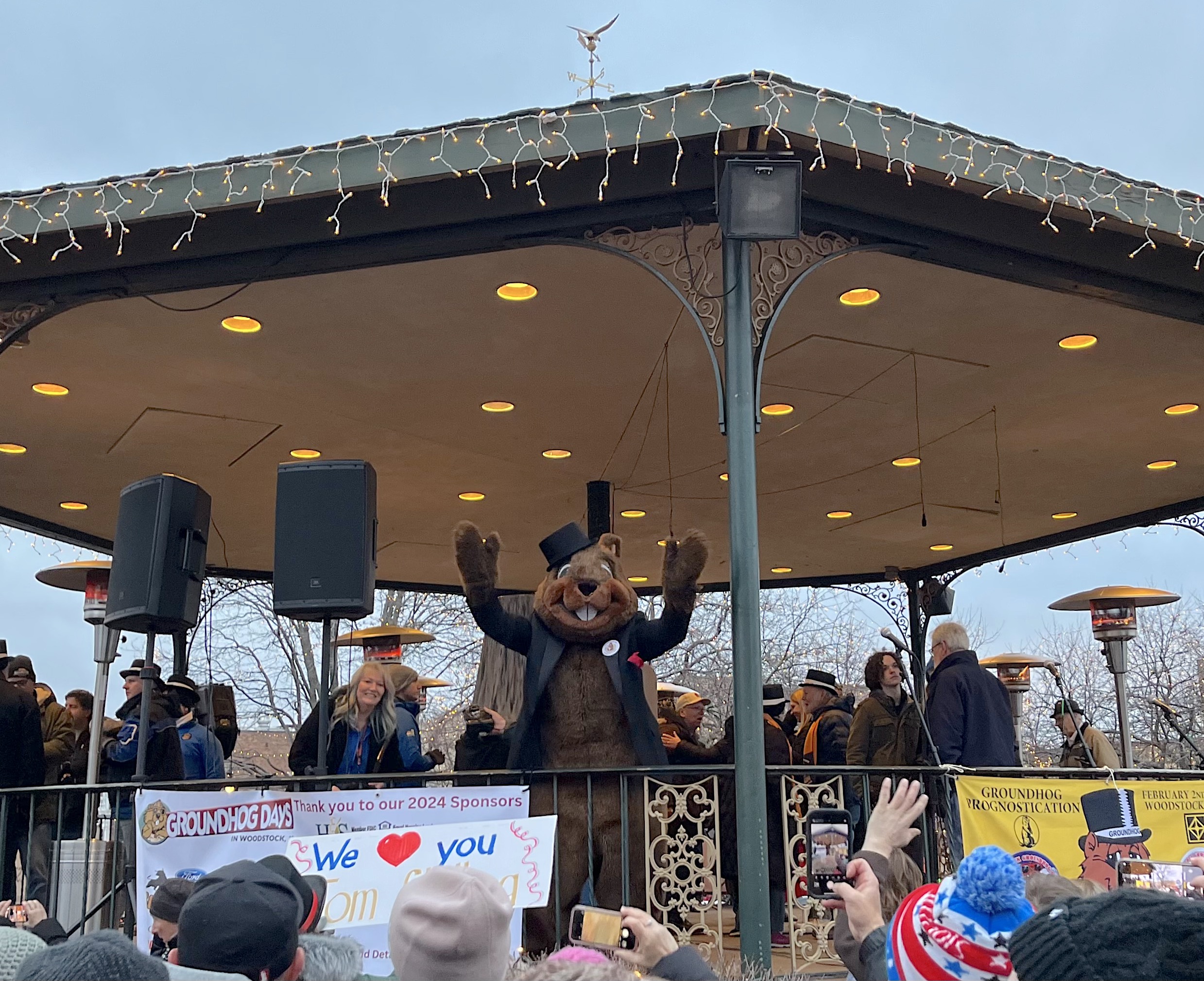
As we approach the the end of October, things are getting eerie. I'm not talking about spectral Halloween decorations. (Sorry, I wound up squeezing two different holiday references into this post.) Rather, I'm referring to the haunting possibility that state legislators may go home from their fall veto session, wrapping up Tuesday through Thursday of next week, without passing a transit reform and funding bill. That could result in service cuts and layoffs, which would indeed be frightful.
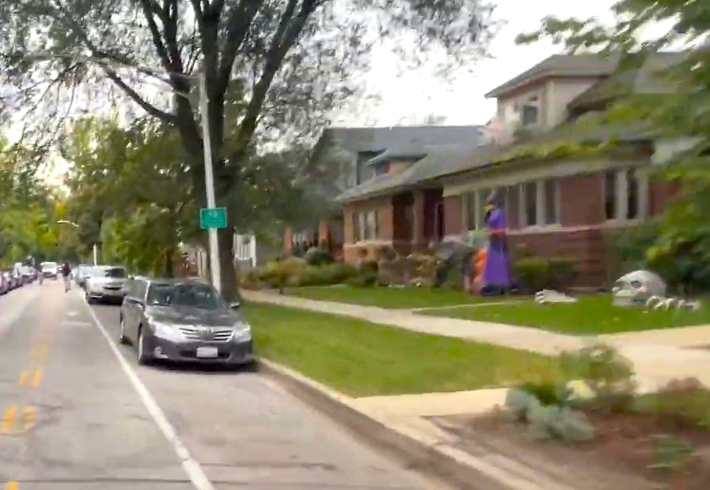
At this morning's monthly Regional Transportation Authority meeting, staffers and directors discussed this spine-tingling possibility. I attended parts of this very long hearing remotely, and when I popped in occasionally, I noticed a lot of contentious back-and-forth about whether or not the RTA has been taking the right approach in its efforts to avert the looming Chicagoland transit fiscal cliff.
But at a time while transit officials and advocates should be presenting a united front to help get a reform and revenue bill past the finish line, perhaps it's best to accentuate the positive. So I'll just share a few interesting segments from the half hour of the hearing, although the last one is a bit of a window on the differences in opinion happening in Springfield this month.
Lessons from the Quaker City
If there's one thing most Illinoisans can agree on, it's that things are better in Chicago than Philly, and that doesn't just apply to sandwich varieties. At the beginning of the RTA board meeting, Executive Director Leanne Redden showed a video featuring RTA Government Affairs Specialist Kyle Whitehead, formerly with the Active Transportation Alliance.

"We can look to Philadelphia, where Pennsylvania lawmakers have been unable to reach consensus on a funding package," Whitehead noted. "So as a result, the transit system has been thrown into chaos," Whitehead said. "SEPTA, the transit operator there, has implemented major fare hikes and major service cuts. You're seeing stories of nurses struggling to get to their shifts at the hospital, and parents who are worried about how to get their children safely to school."
"Now [Philly] lawmakers have stepped in with an interim solution, taking away funding that had been planned for future maintenance projects and using it right now to try to restore service," Whitehead added. "This means, in order to keep service running now, you're potentially jeopardizing future projects for upgrading tracks and stations and equipment. This is not the type of solution we want to see in Chicago. We need sustainable funding and reform that's going to set the system up for long term success. Visit SaveTransitNow.org to sign a letter to your lawmakers urging them to support sustainable funding and reform so we can build a better transit system for all who rely on it."
Don't mess with Illinois, Part 2
Streetsblog has previously discussed the chaos the Trump administration is creating for Chicago transit. Fortunately, so far it generally doesn't appear that the short-fingered White House vandalizer is having much impact on everyday public transportation funding in out region. Redden provided an update.
"As you're likely aware, Congress didn't reach an agreement to continue to fund the government before the end of the fiscal year, the end of September," Redden noted. "So as a result, starting October 1, we are in a federal government shutdown. There are limited impacts, though, functionally to public transit agencies during the shutdown as the [Federal Transit Administration] is able to continue operations because it has what they call contract authority for its money, and is able to reimburse us for previously approved projects." However, she said, the FTA is "not likely to... at least advancing new grants and new projects right now. And that's not just for us. That's nationwide."
"The Federal Railroad Administration, though, [which] has interacted with our commuter rail services, furloughed 23 percent of their employees and will continue though essential activities such as protection of property and safety inspections during the shutdown," Redden elaborated.
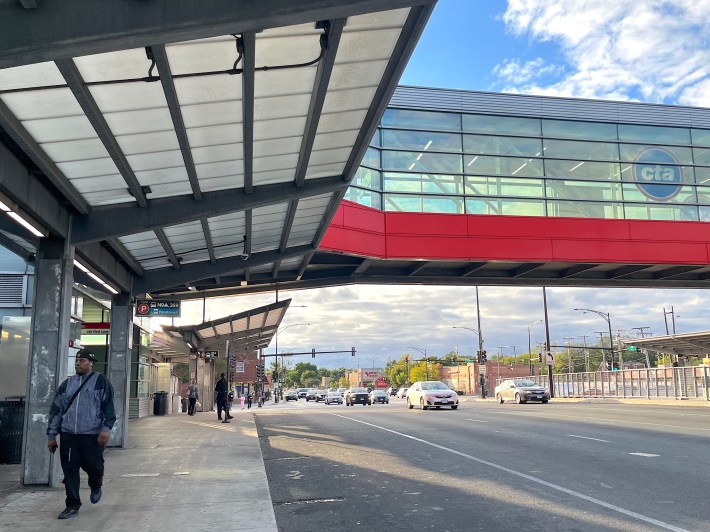
She also touched on Trump's efforts to claw back Red Line Extension funding. "October 3, the US [Department of Transportation] published an interim final rule removing race- and sex-based presumptions of social and economic disadvantage businesses from the DBE program nationally... As a result of this change, USDOT pause the disbursement of some large grants, including $2.1 billion in remaining funding for the CTA Red & Purple Modernization Project and the Red Line Extension, while it conducts a review of the projects and their contracting. Several members of the Illinois congressional delegation have sent a joint letter to USDOT Secretary [and Trump's fellow ex-reality TV star] Sean Duffy, expressing concern about that funding pause and requesting additional clarity on the review and its requirements."
The skinny from Springfield
Next, RTA Government Affairs Director Rob Nash discussed what's been happening lately in Horsehoe Sandwich Land, aka Springfield. "RTA staff presented an update on the 2026 through 2028 fiscal cliff to the House Executive Committee on Wednesday, October 15, and conducted some additional briefings with members of the Senate Democratic Caucus later that same week," he reported.
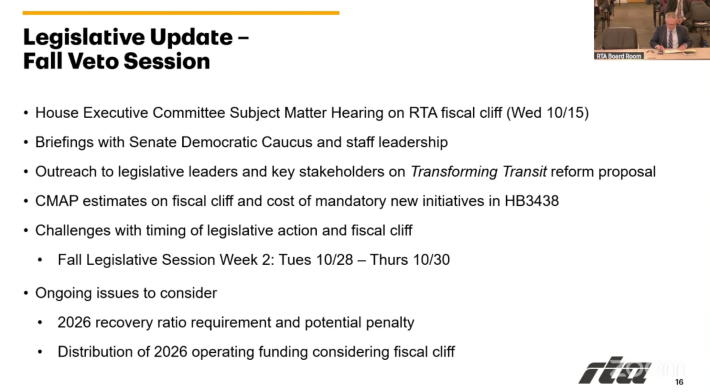
"As we've noted, the reduced cliff numbers [RTA previously projected a $771 million Chicago-area transit deficit next year, but recently shrank that to $280 million] helped to delay the most severe impacts on riders and employees," Nash said. "But we will not avoid these cuts unless additional revenue is identified. Even with the smaller gap, in '26 the system will still have to consider fare increases and potential service cuts and layoffs in order to manage to the end of the year. And in '27 we will have exhausted all available federal dollars, positive budget variances, and other discretionary options we have brought to bear this year."
"As part of the House Executive Committee hearing, [the Chicago Metrolitan Agency for Planning] was also asked to review the cliff and project operating funding gaps in '27 and '28 as well as estimate potential new costs included in House Bill 3438," Nash added. "Members of this board will remember that we had presented an analysis of that legislation several months ago, which included an estimate on potential costs included in the legislation that was passed in the Senate. We still have yet to see updates or amendments to companion legislation in the House, but we could see those as early as next week."
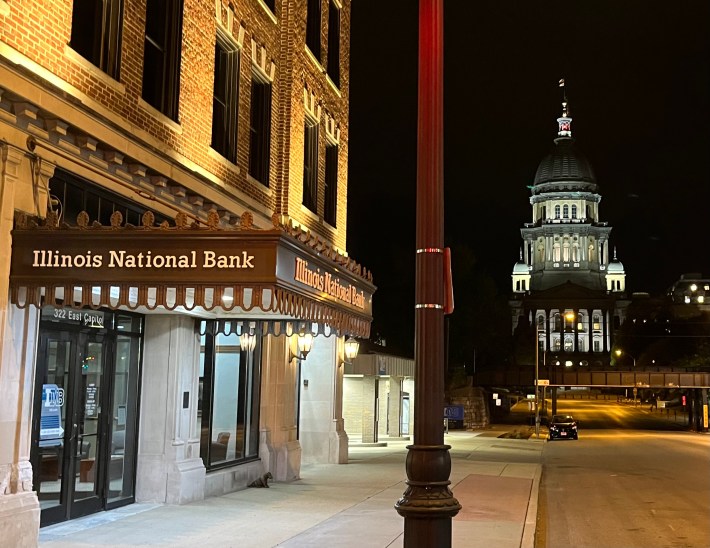
However, the government affairs director warned that, in order to avoid the most severe cuts, action on potential revenue is needed pronto. "Even if the General Assembly chooses to only solve the shortfall for next year, because of the lag time required for new revenues to reach the regional entity, we are already approaching a point where the regional system will need to include budget balancing actions for our 2027 budget," he said. "We don't have time, I guess is the message I'm trying to convey. As we've noted, these financial pressures will come in waves and begin to compound the longer we wait."
Nash concluded that he was happu any questions from the board on revenue status and timing. "But unfortunately, what's in the public realm is about all we know at this point."
Would collar counties be (ground)hogtied by the NITA voting structure?

One question came from board director Dr. Brian Sager, a recent mayor of Groundhog Day hotspot Woodstock, Illinois, where the eponymous film featuring Bill Murray and Andie McDowell was shot. Sager made it clear that, when it comes to current prognostication about transit governance reform, he's seeing his shadow.
"I'm going to be very honest and say that in McHenry County, the position is a little bit bleak," Dr. Sager said at the RTA meeting. He was previously described by Fox 32 Chicago as a "longtime groundhog whisperer."
"The conversation there is that the legislature has already solidified in their minds the [Northern Illinois Transit Authority] governance structure very similar to that which came out in the Senate bill, and that everybody's kind of come to agreement with that, specifically, that the voting structure is going to remain a simple majority versus super majority, and that confounds not only McHenry County, but a lot of collar counties."

Under the proposed structure of NITA, basically the RTA on steroids, the 15 Chicago-, Cook County-, and State of Illinois-appointed board representatives could join forces to overrule the five counter collar directors. On the other hand, this could also be true for the five Chicago reps. But the ex-Woodstock mayor was concerned this setup could force counties like his to relive the same frustrating scenario repeatedly, similar to the fate of Bill Murray's weatherman character in the movie.
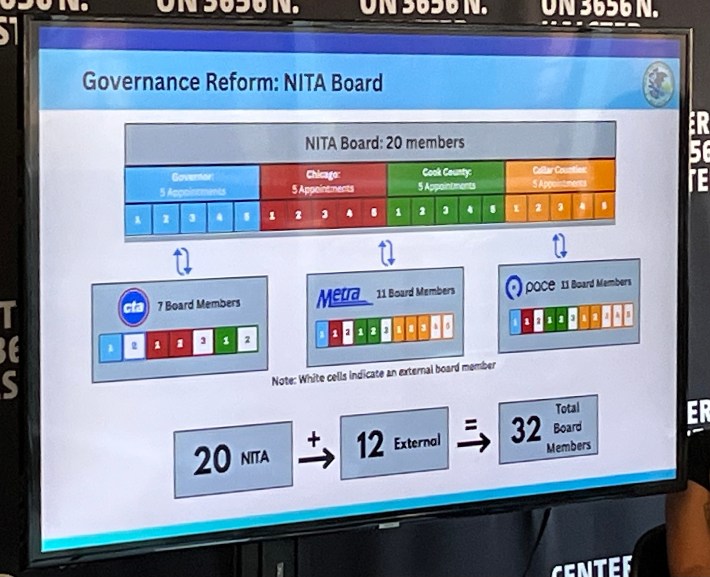
It's worth noting that the rules would allow a measure to pass with only 12 votes if it has at least two votes from each of the four camps, including at least two collar county reps. That would help balance out the 15-to-five overdrive issue.
"What is your perspective on whether or not that governance structure, in the minds of legislators, has been has been already passed?" Sager asked.
Nash replied that was a challenging question, because he wasn't sure whether the House version of the governance reform proposal has gelled yet.
"Your question was a great question," RTA Board Chief Kirk Dillard, a former Illinois state senator, told Sager. "As a former legislator that perked up my ears... Legislators are under pressure, and a couple of times legislators have made comments, and then they'll tell me, "Wow, I really didn't mean it," or, "I'm sorry. Maybe it was over the top." But they have a tough job, and I know they're probably feeling, especially the ones who are our biggest allies, who have zealously advocated for more money and reform in transit, are under the gun."
"There are tensions between the House and the Senate – that's always been part of the process," Dillard added. "I think they talked and they're pretty healthy, but you do have some differences of opinion between the Senate and the House."
"I will point out we are the only legacy system in the country that has not received additional funding since the pandemic," Dillard said. "Even Pennsylvania has taken some action." Thus, the meeting's topics went full-circle.
Watch today's RTA board meeting here.
On Friday, Streetsblog Chicago will provide an update on the Springfield situation from a legislator's perspective.

Do you appreciate Streetsblog Chicago's paywall-free sustainable transportation reporting and advocacy? We officially ended our 2024-25 fund drive in July, but we still currently need $42.5K to complete our budget and keep publishing at full strength in 2026. We'd appreciate any leads on potential major donors or grants. And if you haven't already, please consider making a tax-deductible donation to help us continue publishing next year. Thanks!
